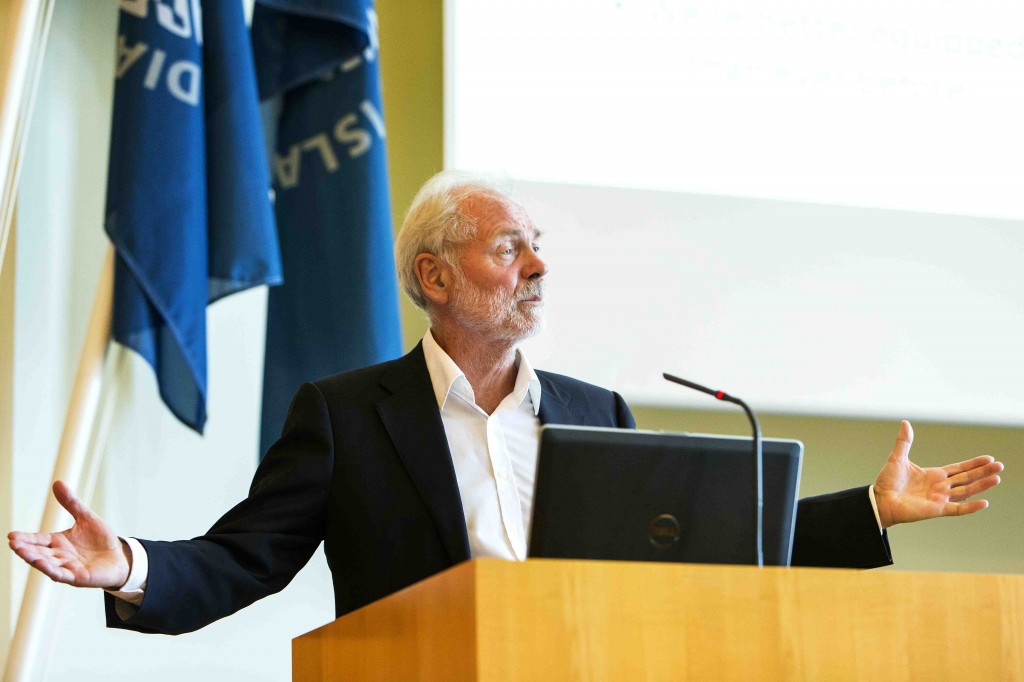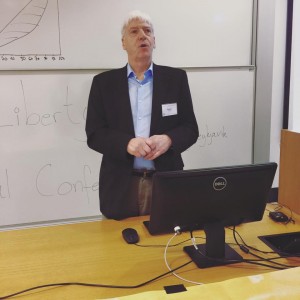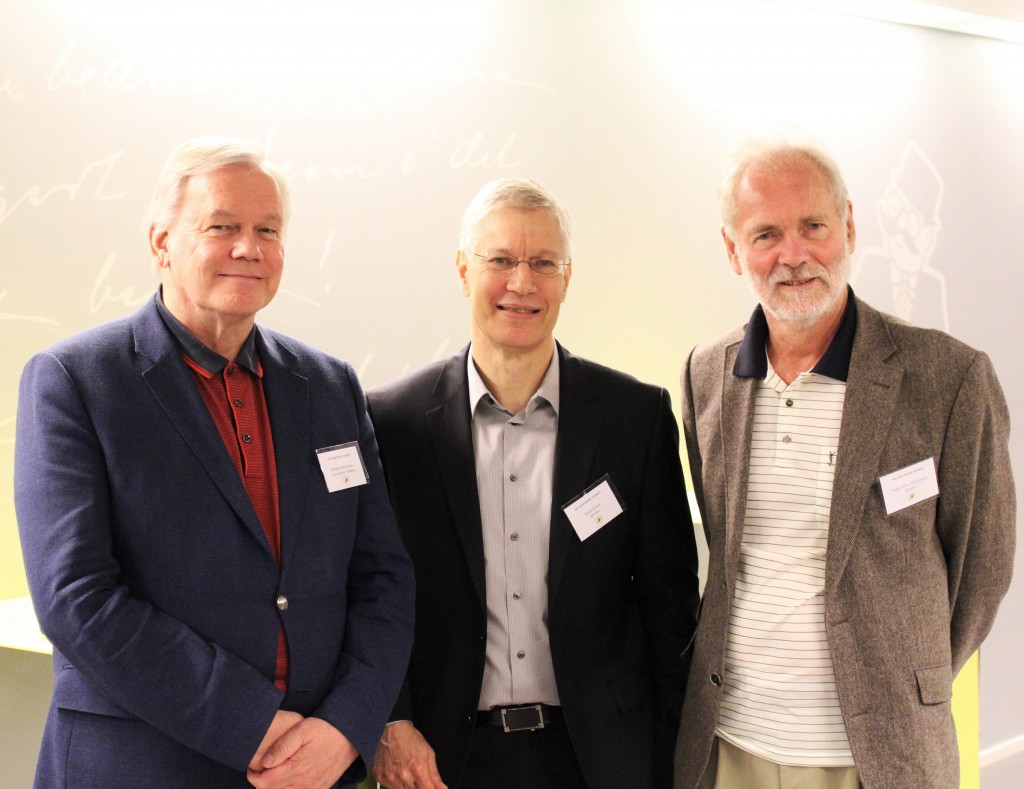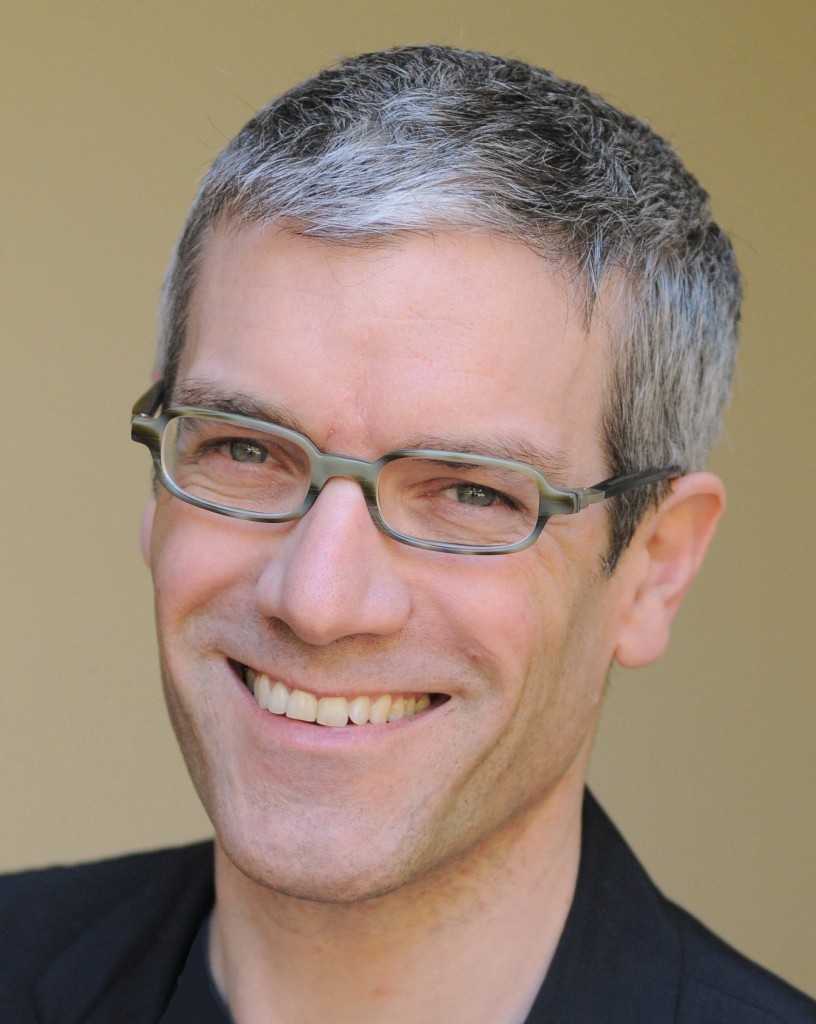At a regional meeting of the ESFL, European Students for Liberty in Sofia, Bulgaria, Saturday 17 October, Professor Hannes H. Gissurarson gives a lecture on “Liberty in Iceland, 930–2015”. He takes the position that the laws of economics must be valid everywhere, also in small societies like Iceland, if they are to be considered laws of economics. Economic analysis can for example explain how and why private enforcement of law, as practised in the 930–1262 Icelandic Commonwealth, worked reasonably well. Ancient Icelanders also developed an effective system of utililising mountain pastures, each of them held in common by a rural community, and thus they escaped the “tragedy of the commons”. Professor Gissurarson also discusses the question why for centuries Icelanders starved while living close to fertile fishing grounds, and finds the answer in the alliance of the foreign king and the small class of local landowners who basically outlawed fisheries as an independent profession. This alliance was finally broken in the 1784–5 Mist Famine. Professor Gissurarson analyses the Icelandic system of individual transferable quotas developed in the fisheries. As a result, these fisheries are both sustainable and profitable: Icelanders have yet again escaped the “tragedy of the commons”.
 Professor Gissurarson contrasts the 1991–2004 market capitalism in Iceland to the 2004–8 crony capitalism when a small group of powerful oligarchs used the good credit Iceland enjoyed as a result of sound policies pursued in the previous decade for massive accumulation of foreign debt. Professor Gissurarson maintains, however, that the credit expansion was not the real cause of the 2008 Icelandic bank collapse. The real cause was the refusal of the U.S. Fed to provide liquidity to the Icelandic banks, by dollar swap deals, at the same time as it did so to almost all other banks in Europe. At the same time, the U.K. government closed British banks owned by Icelanders while presenting an immense rescue package for all other British banks, and moreover invoked an anti-terrorist law against Icelandic banks and institutions. Professor Gissurarson argues that the reason Iceland has risen so quickly again is that it was never bankrupt, as British Prime Minister Gordon Brown wrongly asserted during the crisis. The Icelandic economy was, and is, soundly built on four pillars, profitable fisheries, ample energy resources, a booming tourist industry and much accumulated human capital. Professor Gissurarson’s lecture forms a part of the joint RNH-AECR project on “Europe, Iceland and the Future of Capitalism”.
Professor Gissurarson contrasts the 1991–2004 market capitalism in Iceland to the 2004–8 crony capitalism when a small group of powerful oligarchs used the good credit Iceland enjoyed as a result of sound policies pursued in the previous decade for massive accumulation of foreign debt. Professor Gissurarson maintains, however, that the credit expansion was not the real cause of the 2008 Icelandic bank collapse. The real cause was the refusal of the U.S. Fed to provide liquidity to the Icelandic banks, by dollar swap deals, at the same time as it did so to almost all other banks in Europe. At the same time, the U.K. government closed British banks owned by Icelanders while presenting an immense rescue package for all other British banks, and moreover invoked an anti-terrorist law against Icelandic banks and institutions. Professor Gissurarson argues that the reason Iceland has risen so quickly again is that it was never bankrupt, as British Prime Minister Gordon Brown wrongly asserted during the crisis. The Icelandic economy was, and is, soundly built on four pillars, profitable fisheries, ample energy resources, a booming tourist industry and much accumulated human capital. Professor Gissurarson’s lecture forms a part of the joint RNH-AECR project on “Europe, Iceland and the Future of Capitalism”.











